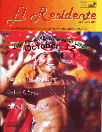 Legal Update
Legal Update
Articles from the Magazine El Residente published by ARCR Administracion SA
|
Articles from the Magazine El Residente published by ARCR Administracion SA | ||
Tax Exoneration's Eliminated : | |
|
By |
In 1992 the law, which allows the acquisition of an exonerated vehicle, was abolished; only the people that had acquired the status before 1992 continued enjoying those benefits. |
Before 1992, the Pensionado and Rentista Residents had the right to acquire an exonerated vehicle every 5 years, which means without paying taxes, in order to stimulate the entry of foreign citizens, which at the same time were bringing dollars to the country. Those dollars were needed in the economy of the country. In 1992 the law, which allows the acquisition of an exonerated vehicle, was abolished; only the people that had acquired the status before 1992 continued enjoying those benefits.
This abolishment of the law was due to an economic change of the government, which not only abolished the exonerations to the Pensionados and Rentistas, but also was a general change that affected all tax exonerations. Exoneration's that used to benefit people and Costa Rican enterprises were abolished. This was done in an effort to improve the tax collection system since Costa Rica was going through an economical crisis. The vehicle exonerations were continued for the Pensionados and Rentistas that acquired their status before 1992, and to other people and Costa Rican enterprises that had any connection with tourist activities. These activities were considered by the government as a priority for the country because of the high income it generates.
In 2000, an Acción de Incontitucionalidad was presented before the Constitutional Court of the Supreme Court of Justice of Costa Rica, known as Sala IV’S by several Costa Rican enterprises that received the tax exonerations. This created the need for an in-depth study. Taking part in this study were; The Instituto Nacional de Seguros (INS), the Contraloria General de Ia Republica (The National Comptroller’s Office and the Ministry of Taxation (Hacienda). The Sala IV determined that all tax exonerations can only be approved by the National Assembly. Since the National Assembly never approved the exonerations, all exemptions were voided and were discontinued.
The Sala Constitucional is the highest judicial organ in Costa Rica and its decisions cannot be altered or changed by another authority.
I want to make clear that it was not through a law that the tax exonerations were discontinued. It was a decision by the courts that determined that the exonerations were a right that had no legal standing and could no longer be continued.
The actual situation for Pensionados and Rentistas that acquired the status before 1992 cannot acquire vehicles with partial or total tax exemptions. Those who still possess the vehicles with the PEN license plate, have two options: one is to continue with the PEN for as long as they like on the current vehicle, and the other is to change the PEN plate for a regular Costa Rican license plate. At the time of purchase of a new car the PEN plate cannot be used and taxes must be paid on the new vehicle.
This article’s objective is just to give to a quick and simple explanation of the elimination of the exoneration of vehicles to the Pensionados y Rentistas. However this is a very complicated and very legally technical matter - difficult to understand even for people experienced in these matters, so please contact a lawyer if you require further clarification.
© El Residente ARCR Administración S.A. San José, Costa Rica N.B. Like all information on the internet, this article may currently be incorrect or out of date.